Kadaseela Biriyani movie review: Realistically brutal
To begin with, there’s nothing exciting about the basic plot of the movie ‘Kadaseela Biriyani’: just a man (Vijay Sethupathi) narrating a story about some villagers in rural South India. But as wide-angle shots take you through dense forests and the lives of the people, the story gets interesting and all of a sudden, you are hooked.
Rarely do I begin a movie review talking about cinematography, but Kadaseela Biryani is a deserved exception. The Tamil-language black comedy has exceptional cinematography courtesy of Azeem Mohammed and Hestin Jose Joseph.
The cinematographer duo uses every trick in the book to create the havoc necessary to tell a violent, brutal tale of three brothers seeking revenge for their father’s murder. From panning the camera to capture the exotic beauty of rural Kerala to following its characters with body cameras to taking the high route with drones to place the characters in their respective settings, the camerawork in Kadaseela Biriyani just mesmerizes you.
As for the story, a slain businessman’s three sons—the eldest Periya Pandi (Vasanth Selvam), the second Ila Pandi (Dinesh Pandi) and the youngest Chikku Pandi (Vijay Ram)—plan to avenge their father’s death by murdering Sathyan (Vishaal Ram), a Kerala rubber-state owner, at his home. Chikku, the youngest, is reluctant as his father had raised him away from his hotheaded brothers but the elder siblings are adamant and force him to become a part.
Their well-planned murder trip goes a bit awry when they find Johan (Hakkim Shah), Sathyan’s psychotic son, at home. The brothers had expected old Sathyan alone, but the presence of his son—an ex-convict with multiple murders that were not even reported due to the family’s influence—scares the wits out of them. Still, they do not want to leave the plantation un-avenged.
Also read: ‘Aranyak’ movie review: Raveena Tandon caps a stellar comeback
The plot, screenplay and their execution in Kadaseela Biriyani have this simplicity that makes the film feel like it’s based on a true story. Our protagonists—the Pandi brothers—seeking to avenge their father are themselves flawed but like commercial cinema, the film does nothing to whitewash their image. Everyone in the film is in a gray area, adding to the violence and brutality of the incidents around the film.
When I talk about violence, I do not mean Tamil blockbuster violence with a huge stunt-crew and CGI. The rudimentary presentation of both physical and mental conflict is so realistic that it instills fear in the audience. For debutant director and co-writer Nishanth Kalidindi, the black comedy also becomes a platform to explore the extremist nature of people that makes them commit serious crimes. The director gets an apt group of actors who perform their roles without becoming larger-than-life: they stay grounded to their characters and settings, again making the film seem uncomfortably real.
Adding to the superb cinematography, writing/direction and acting are the film’s music. Although based in rural South India, the film’s background score does not make much use of traditional music heavily influenced by ethnic percussion instruments. The music rather is stylistically modern, not overbearing and for a Tamil film—fresh! Never had I thought that continuous beating of a single hi-hat from a Western drum kit could cause so much tension in a scene.
Who should watch it?
Kadaseela Biriyani is my first review of 2022 and I am glad I watched it without hearing or reading about it. With so little expectation at the start, my experience by the end was overwhelming. I would recommend it for anyone who trusts my selection of movies.
Kadaseela Biriyani
Rating: 4 stars
Genre: Black comedy
Actors: Vasanth Selvam, Dinesh Pandi, Chikku Pandi (Vijay Ram)
Director: Nishanth Kalidindi
Run time: 1hr 55mins
The novels that saw me through 2021
The year 2021 was fantastic in terms of all the books I could get my hands on without having to lug a suitcase full of them from one of my trips abroad. Suddenly, there were a lot more titles coming in than ever before. One of the proprietors of Pilgrims Book House told me that this was because publishers were taking pre-orders and books were being published in India alongside their release in the US and European countries. Apparently, before Covid-19, they used to release in India a few months after the initial publication and since Nepali suppliers ordered books from India that put us back further.
But in 2021, I would read about a book on Goodreads or hear some of my favorite booktubers talk about certain titles and voila, they would be on the shelves during my next trip to one of the bookstores in Kathmandu. It was amazing. My TBR pile got higher by the day and I read more than I ever thought I could. So, without further ado, here are some books that I read and fell in love with in 2021.
The Giver of Stars by Jojo Moyes
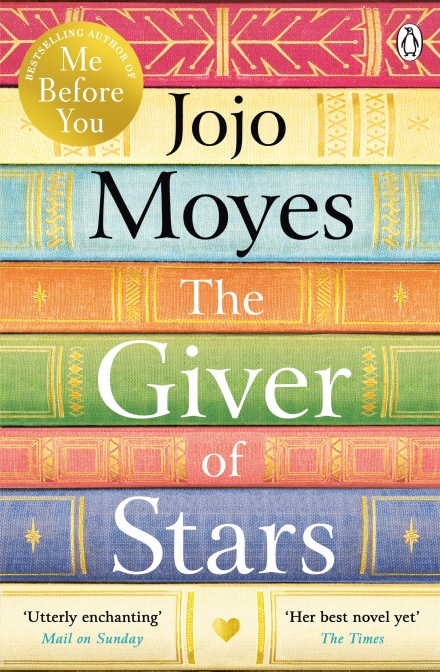
Set in small-town 1930’s Kentucky, the book is based on the real-life Pack Horse Librarians of Kentucky, or the Horseback Librarian program as it was called then. The program delivered books as part of Eleanor Roosevelt’s traveling library and ran from 1935 to 1943, making books accessible to over 100,000 rural inhabitants. It’s a lovely, albeit thick, book that has conflict, drama, purpose, friendship, and love. The story is tender, heartbreaking and funny at the same time. Best, it reads like a thriller.
The Stationery Shop in Tehran by Marjan Kamali
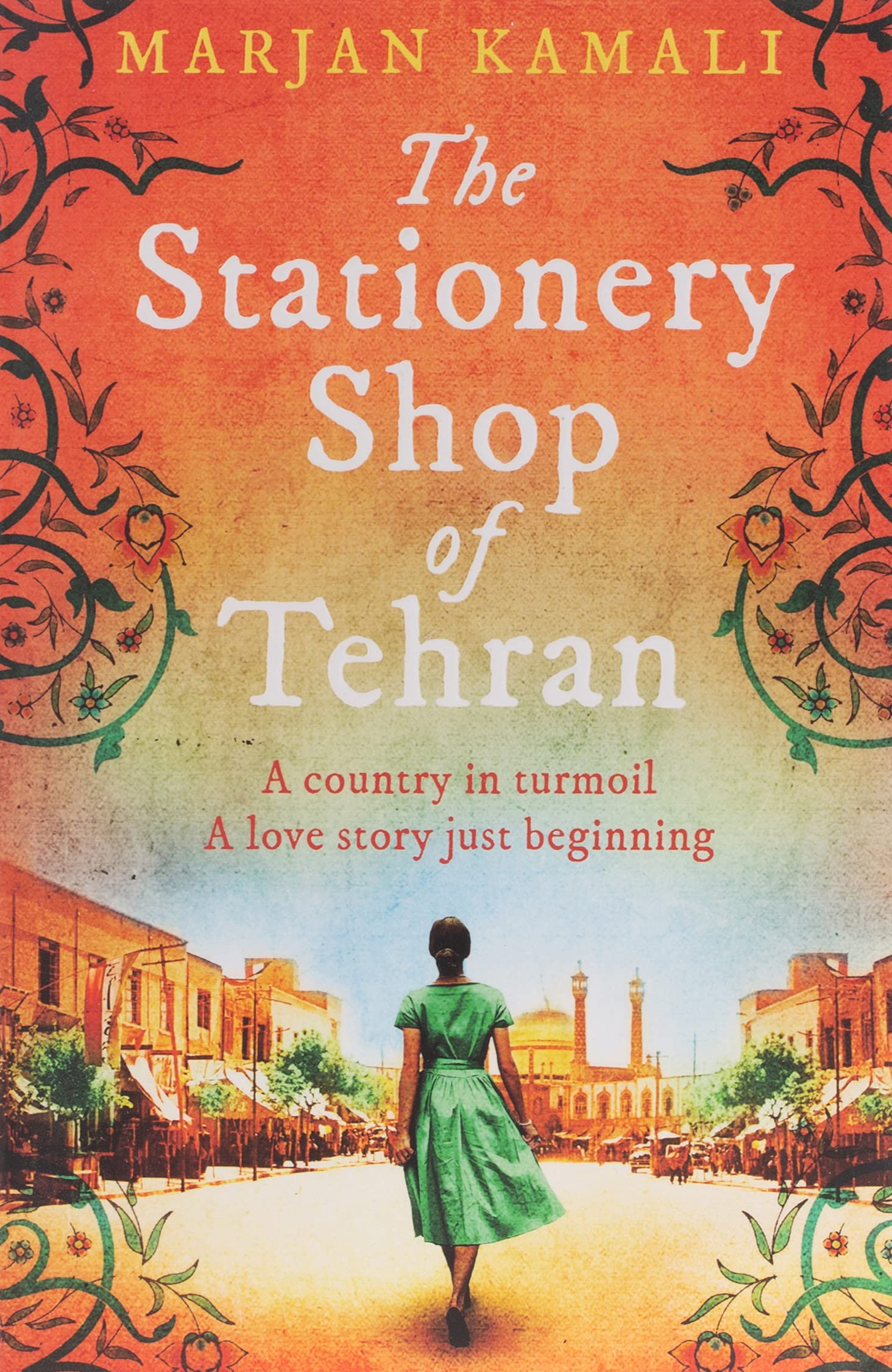
I have gifted and re-read this book multiple times since reading it earlier this year. It’s a beautiful story about how love can mark you for life and a celebration of unbreakable family bonds. Roya and Bahman meet as teenagers in Tehran during a politically charged time and fall in love. But fate (or a certain someone) tears them apart and Roya spends her life wondering what went wrong till she ultimately finds the answers, and it breaks her heart. The book, with its elaborate descriptions of Persian delicacies and cooking techniques, awakens all your senses besides tugging at your heartstrings.
The Secret Keeper by Alka Joshi
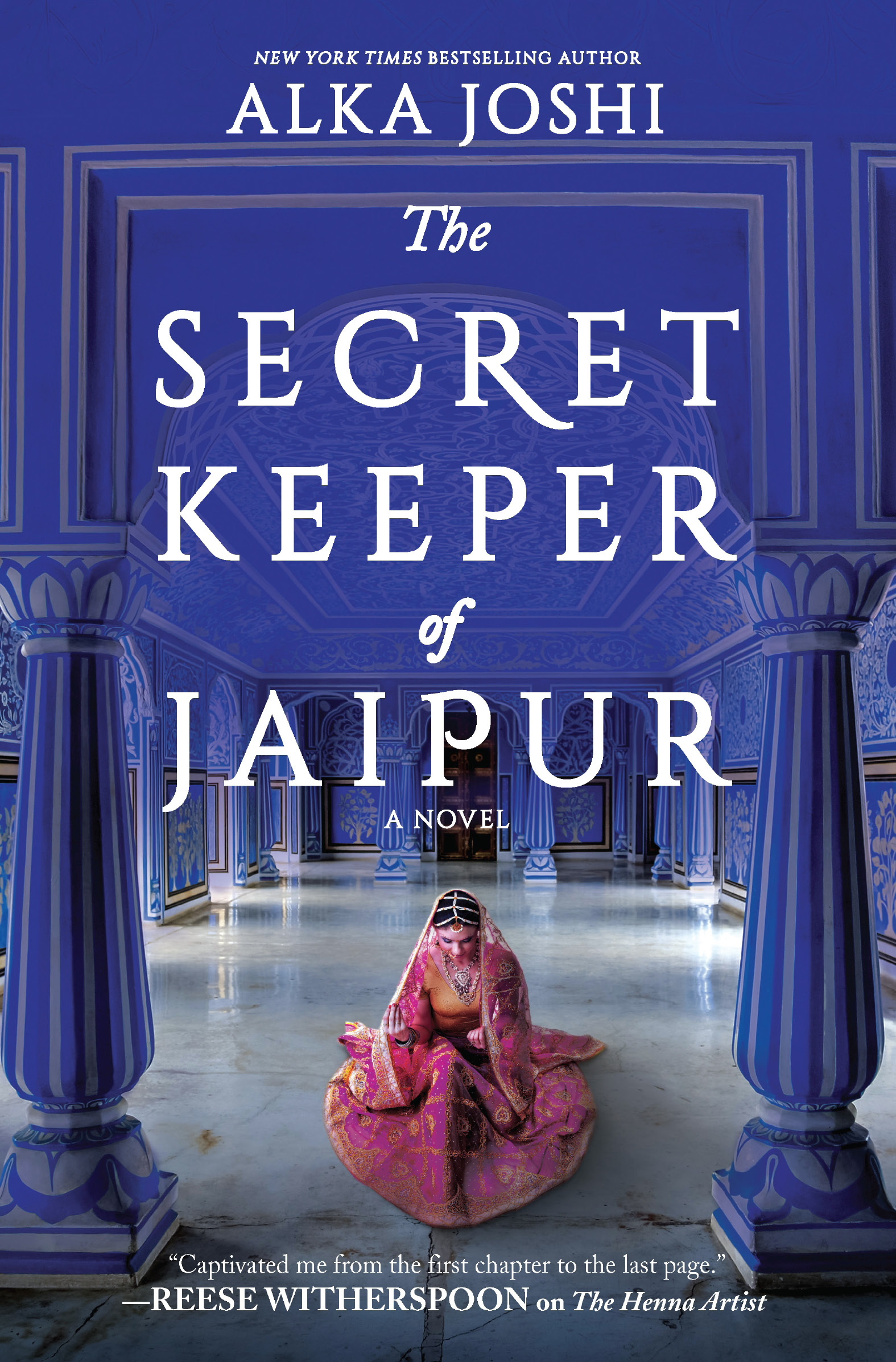
‘The Secret Keeper of Jaipur’ is the second part of a planned trilogy but it doesn’t matter if you haven’t read the first book, ‘The Henna Artist’. Though Lakshmi, the protagonist of The Henna Artist, is an integral part of the story, not knowing what happened to her previously doesn’t ruin things. Instead, you get to put the pieces together through the little snippets of information Joshi provides throughout the book. What I loved most about it, apart from historical elements, is that there are two different settings—Jaipur and Shimla—and shuttling from one world to another is super fun and engaging.
The Promise by Damon Galgut
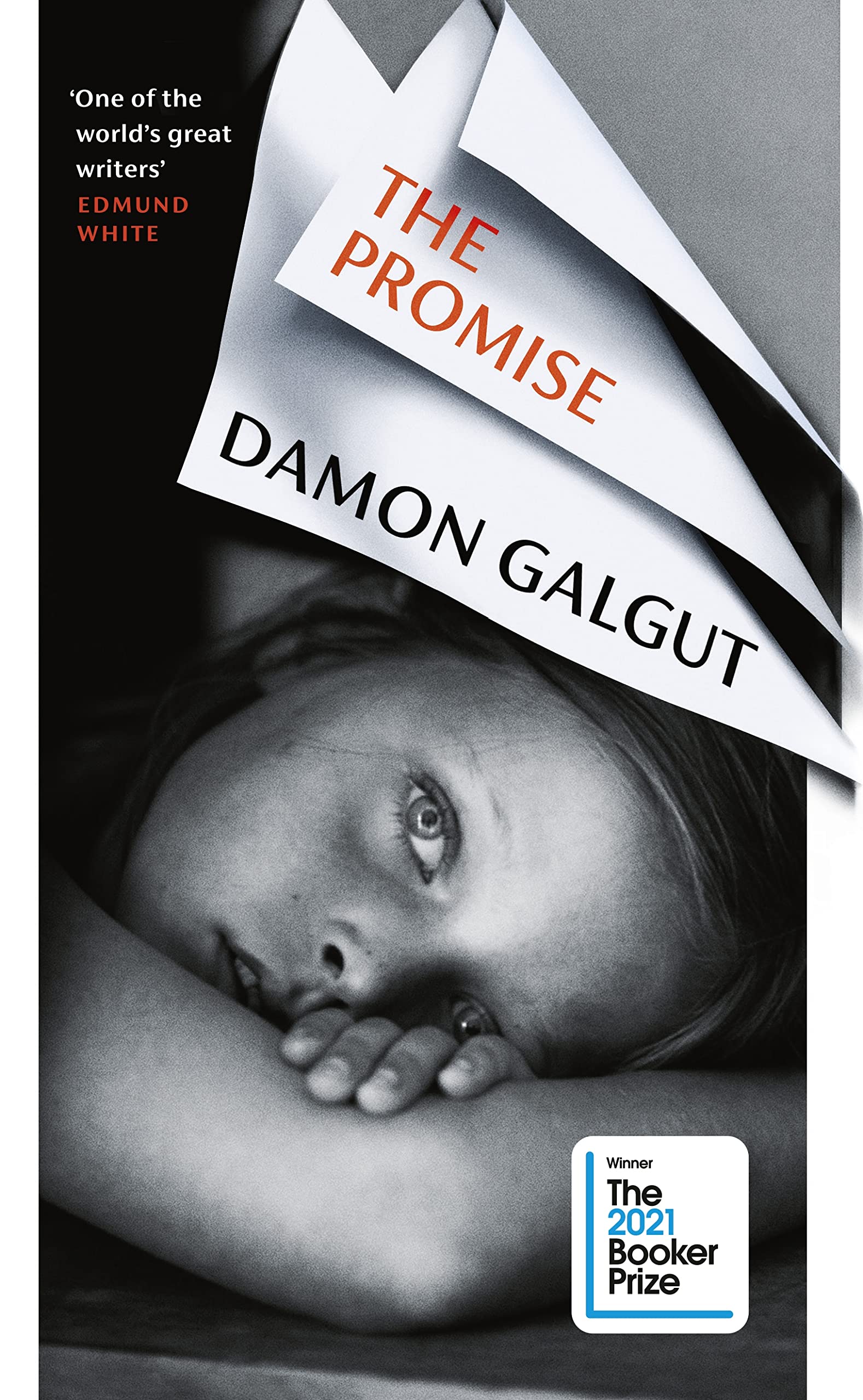
Winner of The Booker Prize 2021, ‘The Promise’ is about this house where there are strict markers of race. It’s, you could say, a miniature of apartheid South Africa. The Blacks were promised so much when the apartheid ended but they were never fulfilled and this is the theme that runs throughout the book. There is a lot of South Africa’s complicated history and issues arising from the dismantling of apartheid. The prose is choppy and slow but Damot knows what he is doing and raptures the readers with the content. As a white South African writer, Damot’s writing feels like insider information.
The Seven Husbands of Evelyn Hugo by Taylor Jenkins Reid
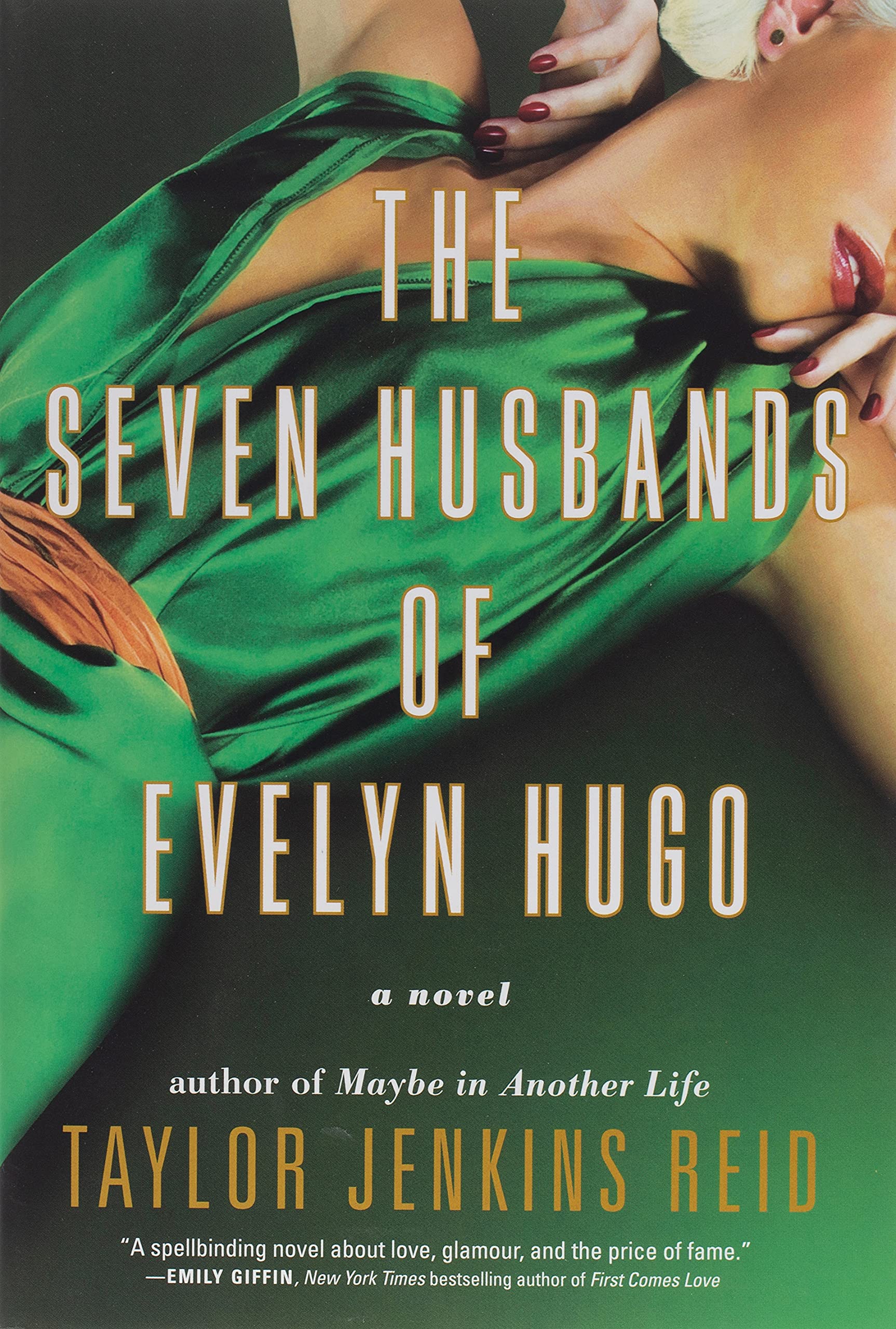
A historical fiction set in old Hollywood, ‘The Seven Husbands of Evelyn Hugo’ opens with rookie reporter Monique Grant being asked to interview a Hollywood star who has led a scandalous life. Monique goes to meet Evelyn to get her story for the magazine she works for but Evelyn tells her she isn’t interested in a magazine cover. Rather, she wants to tell her life story that Monique is free to publish as an authorized biography once Evelyn is no longer around. What follows is an intriguing story that addresses the issues of homophobia, racism, and sexism.
Transcendent Kingdom by Yaa Gyasi
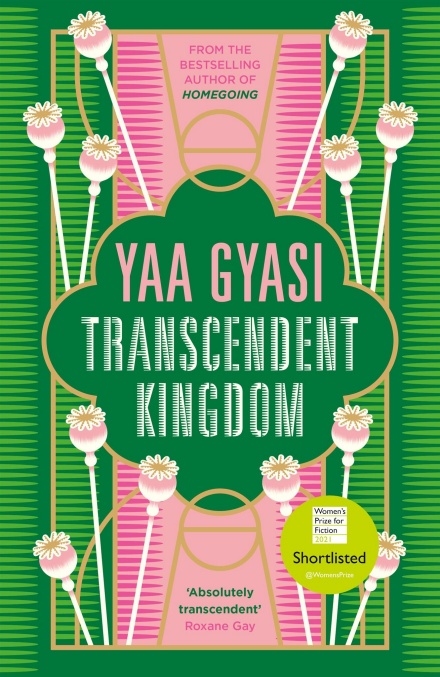
‘Transcendent Kingdom’ was probably the most awaited book of 2020. After the success of ‘Homegoing’ in 2016, the world wanted more of this phenomenal writer. Gyasi’s second work of fiction is an excellent meditation on life and how we are sometimes consumed by our losses. Through the novel’s protagonist Gifty, a PhD candidate at Stanford University, Gyasi explores the complex parents-children relationship. Can you love your parents but not like them? How do we figure out who we are and what we are capable of when our foundations are shaky? It’s a sad but beautiful book that haunts you for a long, long time.
Girl in White Cotton by Avni Doshi

‘I would be lying if I said my mother’s misery has never given me pleasure’ is perhaps the best opening line I have read in a while. I knew I would love this book the minute I read that sentence but I wasn’t prepared for the emotional rollercoaster I was about to embark on. The story about love and obligations among many other things is beautifully written. It is sharp and witty and the characters are so relatable. Alternatively published as ‘Burnt Sugar’ in the UK (after it was originally published in India as ‘Girl in White Cotton’ in 2019), the novel was shortlisted for The Booker Prize 2020 and named NPR’s Best Book of 2020.
Anxious People by Fredrik Backman
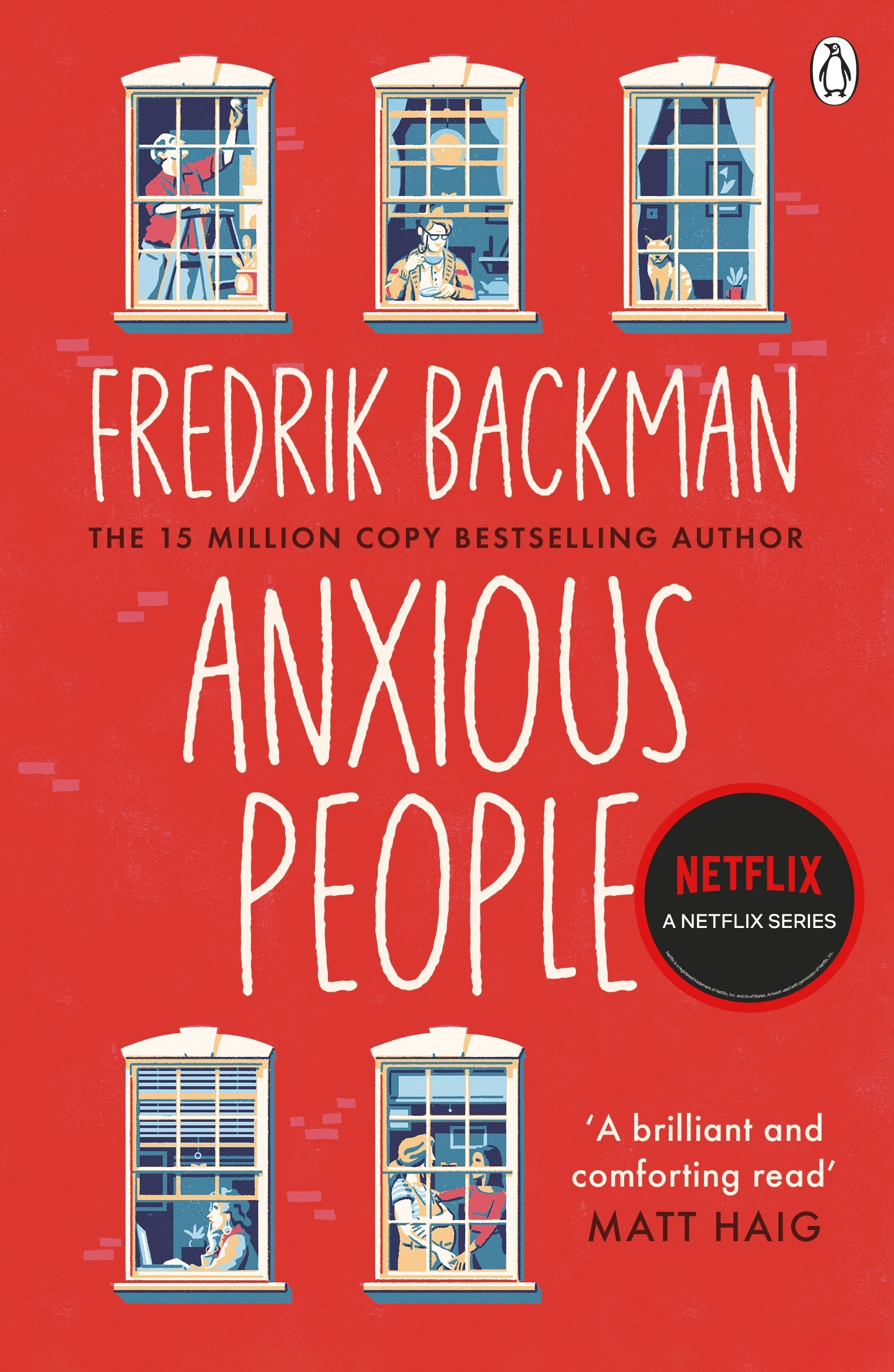
I’m going to cheat a little and include a book I bought but haven’t read. Don’t get me wrong, I love Fredrik Backman. ‘A Man Called Ove’ is one of my absolute favorites. I have read all his other works too. I’m so excited about ‘Anxious People’ that I just can’t bring myself to read it because then it will be over and I won’t have anything to look forward to. Right now, I look at its spine daily, sometimes pick it up and read the blurb or a random paragraph and put it back and that makes me happy—knowing I have something awesome to read when I (eventually) hit a reading slump.
We Are Okay by Nina LaCour
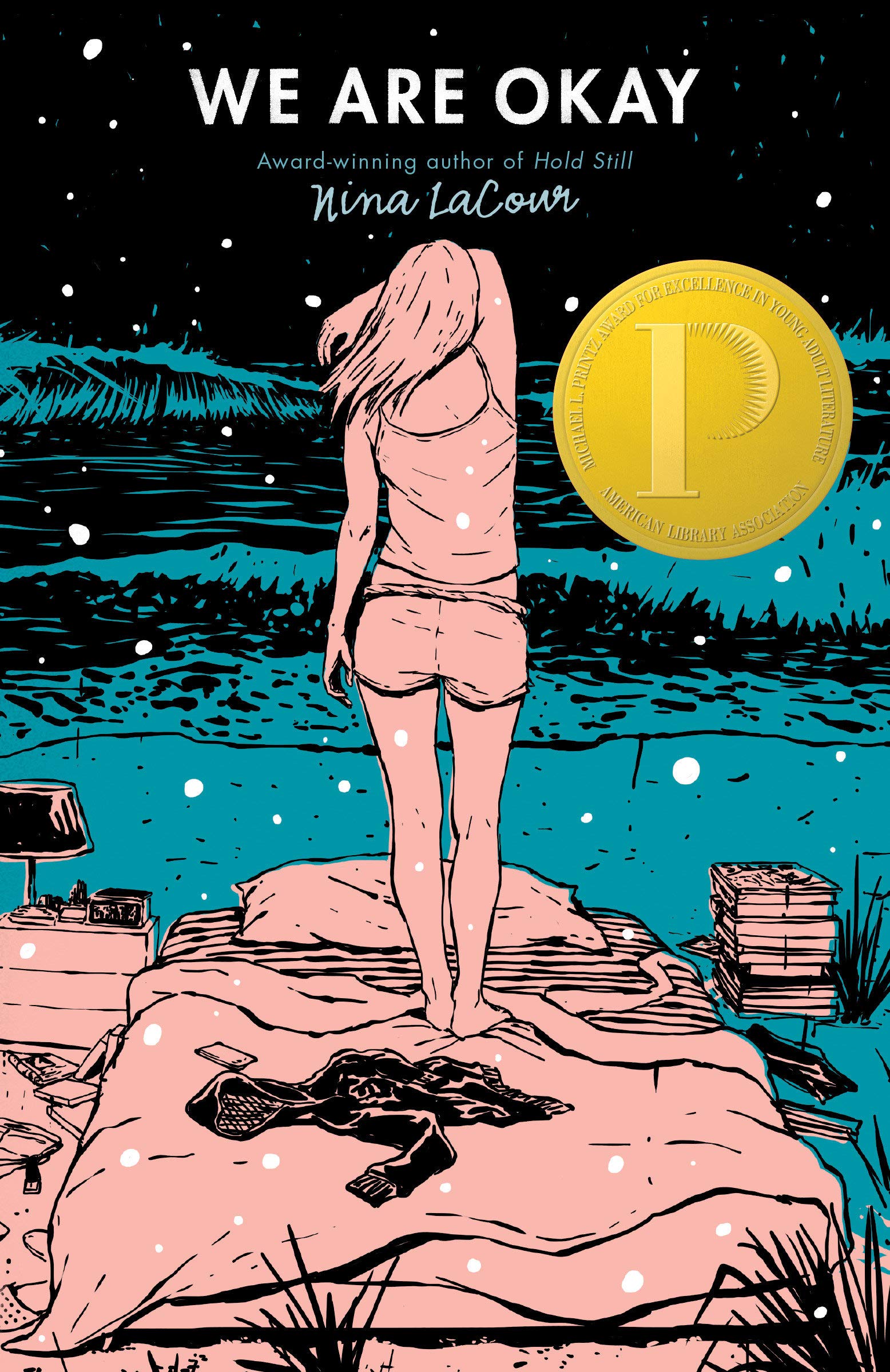
‘We Are Okay’ is the story of a college freshman named Marin who runs away after the sudden death of her grandfather. But her best friend, Mabel, is intent on reconnecting with her and so she visits Marin at her college in New York during winter break when the latter is alone in her dorm. The narrative alternates between present day and flashbacks to Marin’s life with her grandfather. Slowly you get the idea of what happened in Marin’s life for her to cut ties with everyone. LaCour is a celebrated LGBTQIA+ novelist and she explores the relationship between Marin and Mabel in that context as well.
Aristotle and Dante Dive into the Waters of the World by Benjamin Alire Saenz

The much-awaited sequel to ‘Aristotle and Dante Discover the Secrets of the World’, this book picks up roughly where the first left off. The sequel begins with Ari and Dante in the summer before their senior year. It’s a precious bubble in time before they are forced to grow up and deal with life’s many curveballs. The first part had left me wanting a little more of these two fascinating boys and Saenz delivered, and how. If you loved the first book, you will gobble this up. Trigger warning though, it has mentions of transphobia.
A year well spent on YouTube and Netflix
I think I watched over 300 movies and series in 2021, my highest yearly count, thanks to the pandemic, high speed internet and my new smart TV. Not been to a movie hall since January 2019 though. Not even for Spiderman. But not missing any of that experience either as Kathmandu’s traffic has only worsened and parking charges have gotten atrocious.
So to sum 2021 and my movie-watching experience, I revisit some of my recommendations for the year in case you have missed them. The recommendations are not all ‘5 Stars’ mind you. I am just reinforcing some movies that are definitely worth your time.
On YouTube
Ghampani (2017)

Ghampani is a lighthearted social drama, the debut work of film critic turned writer/director Dipendra Lama. It was a box office success when it was originally released. Right through his filmmaking career, Lama has given the impression of being someone rooted to society and its realities, even in his works of fiction. Ghampani is a movie that sums up Lama’s style of writing and directing stories, as well as characters and settings that are the mirrors of our society.
The movie is set in a rural village, where childhood friends Furba Tamang (Dayahang Rai) and Tara Sharma (Keki Adhikari) fall in love and disrupt the social ‘harmony’ as they are from separate castes.
Rating: 4 stars
Genre: Drama
Actors: Dayahang Rai, Keki Adhikari, Ankeet Khadka
Director: Dipendra Lama
Run time: 1hr 53mins
Dhanapati (2017)

Dhanapati is a criminally underrated movie, and deserves a lot more attention. Directed by Dipendra K. Khanal, the film stars the very talented Khagendra Lamichhane who also writes this political drama that spells only reality when it comes to narrating a common man’s life.
The film revolves around Dhanapati and his life as a common man living in poverty with his wife (Surakshya Panta) and a daughter. To send his daughter to a good school, Dhanapati plunges into politics, to some troubling consequences.
Rating: 3.5 stars
Actors: Khagendra Lamichhane, Surakshya Panta, Aashant Sharma
Director: Dipendra K Khanal
Genre: Drama
Run time: 1hr 53mins
Khatta Meetha (2010)

The Hindi-language movie gave the world Sachin Tichkule, a popular character among meme lovers and connoisseurs of contemporary online humor in our part of the world. When Urban Development Minister Ram Kumari Jhakri went on a rant against engineers and architects recently, I vividly remembered some scenes from this movie.
Akshay Kumar plays Sachin, a contractor from a respectable middle-class family who has big dreams but small coffers. With no means to pay bribes to get his hands on lucrative government contracts, Tichkule struggles to stay in business, even as his family loses faith in him.
Rating: 3 stars
Drama
Cast: Akshay Kumar, Trisha Krishnan, Rajpal Yadav, Johnny Lever
Direction: Priyadarshan
Length: 2hr 38min
On Netflix
Vanjagar Ulagam (2018)

Fifteen minutes into Vanjagar Ulagam, I realized the film’s background score was oh-so-good and re-watched it from the beginning just to pay more attention to it. Thank you for this feature, Netflix (and other OTTs).
The 2018 Tamil language crime-thriller that translates to “World of crafty people” made it to my review list just because of its sound track. In the movie, Shanmugam alias Shaam (Ciby Bhuvana Chandran), wakes up from a drunk stupor one day to find out that he is accused of murdering his neighbor, Mythili (Chandini Tamilarasan).
Rating: 3.5 stars
Genre: Crime/thriller
Actors: Ciby Bhuvana Chandran, Guru Somasundaram
Director: Manoj Beedha
Run time: 2hrs 2mins
Capitani (2019)

Capitani comes as a recommendation not only because its a Luxembourgish production, but also because the crime drama series puts its protagonist—inspector Luc Capitani—into a labyrinth of interconnected mysteries that point at multiple directions. Right from the opening shot, the film weaves an intricate web of suspense and secrets, which unfold till the very end.
And Capitani is not only an entertaining thriller but also an educational one as it provides a rare glimpse into the people and society of exotic Luxembourg. For example, it took me the whole first episode to realize that Luxembourgish language is heavily influenced by German and French.
Rating: 4 stars
Genre: Crime, thriller
Run time: 5hrs 30mins (approx.)
Actors: Luc Schiltz, Jil Devresse, Claude de Demo
Director: Christophe Wagner
Clickbait (2021)

This American-Australian miniseries is probably one of the most relevant in contemporary times. The eight-episode series is about how the internet has become a means of inciting violence, but it also does not focus entirely on technology either. Instead, Clickbait follows its humans—the characters in the story who give their unique POV in each episode.
Nick (Adrian Grenier) gets into dire situations because of the internet while his friends and family scramble to save him. Using Nick and his family to tell the story, Clickbait also mirrors the lives of millions of people who have been wronged on the internet one way or the other.
Rating: 4 stars
Actors: Adrian Grenier, Zoe Kazan
Directors: Brad Anderson, Emma Freeman, Ben Young, and Laura Besley
Run time: 5hrs 30mins (approx.)
Top 10 non-fiction reads of 2021
As 2021 draws to a close, so does another year of engrossed reading. And there is always so much to read about our own country and the neighborhood. The region, by the way, also makes for the most popular non-fiction reads here in Nepal. Here are the ‘Top 10’ non-fiction bestsellers for the year as per Mandala Book Point, Kantipath, Kathmandu.
1. All Roads Lead North: Nepal’s turn to China by Amish Raj Mulmi

This book navigates Nepal-China relationship over the past three centuries. Mulmi tries to tackle Sino-Nepal relations from the perspective of those whose lives are directly impacted by the geopolitical developments in this region. He records experiences of Nepal-Tibet traders, former Khampas (Tibetan guerillas), Nepali entrepreneurs and the population living near the country’s northern border with China. Alongside, there’s also a concise modern history of the complex Nepal-China-India relations. The book portrays China’s increased influence in Nepal through trade, tourism and bilateral investment and highlights how that affects people living along the Nepal-China border.
2. India and Asian Geopolitics: The Past, Present by Shivshankar Menon

The author gives an insight into India’s role after independence, within Asia and the broader world. Menon tries to capture modern India’s navigation of regional geopolitics in order to pursue its foreign policy goals. He also looks at the future and analyzes how India’s policies might evolve in response to the current and new challenges. As India continues to grow economically and gain stature on a global scale, its domestic preoccupations and international choices become more significant. Monon’s long diplomatic career and his grasp of geopolitical and diplomatic history is reflected in his writing. The book is a must read for anyone interested in understanding India’s role in the emerging world order.
3. Unleashing the Vajra by Sujeev Shakya

Shakya analyses the social, political, and cultural aspects underlying the state of Nepal in order to strategize the recalibrations required to capitalize on its location. He questions the basics of Nepali culture, consumerism, conduct, and convergence of economic activities with its two neighbors, India and China. Nepal now has the opportunity to unleash its economic potential and take advantage of the two populous and emerging economic neighboring powerhouses, but the book asserts that the country has only two decades to realize this potential. There is a good overview of the historical underpinnings of today’s achievements and opportunities. In addition, it offers thoughtful perspectives for readers who have an interest in Nepal’s economic and foreign policies.
4. The Politics of Nepal: Persistence and Change in an Asian Monarchy by Leo E. Rose & Margaret Welpley Fisher

The book offers a systematic introduction to the Nepali political system. Rose has always been invested in Nepali politics from when he first co-wrote Democratic Innovations in Nepal with Bhuban Lal Joshi, about two personalities from extreme sides of the political spectrum: King Mahendra and the first elected Prime Minister, BP Koirala. Nepali politics had long been neglected by scholars and was largely unknown to the outside world until mid-fifties, even though Nepal is quite unique considering it has never been reduced to a colonial status and it was one of the few Asian countries where monarchy was the chief agency in the modernization of traditional institutions.
5. Beyond Possible by Nimsdai Purja

Beyond Possible tells the reader that anything is possible, as long as you have hope and determination. Nimsdai Purja takes us on his journey of achieving the seemingly impossible: scaling 14 mountains of over 8,000m in six months and six days under ‘Project Possible’. Along the way he saved several stricken climbers and put spotlight on climate change and the Nepali climbing community. Not only does the book talk about his bravery but also moments he wavered due to his near-death experiences in an avalanche and the frustration when no other climbers were helping him rescue lost climbers. One encounters a world which is so ruthless that death is a common phenomenon.
6. Nehru, Tibet and China by Avtar Singh Bhasin

Bhasin analyses history to understand why Indo-China relations continue to remain tenuous. The book analyses events from 1949 to the Indo-China war in 1962 and its aftermath to provide more context about the bilateral dynamic. Jawaharlal Nehru’s futile attempts to prevent the communists from taking over Tibet and the fleeing of the 14th Dalai Lama to India was the onset of India’s souring relations with China, he writes. Documents and archives are used to make the narrative authentic and credible. A synopsis highlights how policies were made during this critical period in India-China relations as well as their continued relevance.
7. Political Economy of Social Change and Development in Nepal by Jeevan R. Sharma

Nepal has been undergoing various socio-political and economic changes since the 1950s. From a hierarchical monarchy to a republican order which has engrained ideas of human rights and equality, there has been a gradual shift in the political economy of rural livelihoods and deeply penetrated ideas of development and modernity in the countryside. Focusing on local discourses and experiences, it draws attention to the power of historical processes and how they produce ideas of equality, human rights, and citizenship. Sharma also builds on the scholarship in Nepal from a multi-disciplinary and synoptic perspective.
8. Backfire in Nepal: How India Lost Plot to China by Sanjay Upadhya

The author takes the reader through a timeline of Nepal-India relations in the past 15 years. Starting with Nepal’s own Comprehensive Peace Agreement (2006) to the signing of the new transit, security, and strategic treaties between Nepal and China most recently, Upadhya highlights seminal developments that have enhanced China’s role while reducing India’s in this landlocked country. He discusses China’s growing investments in Nepal as well as a number of high-level visits, including from Chinese President Xi Jinping. As is clear from the book, the 2015 unofficial border blockade was, in many ways, the turning point in China’s engagement in Nepal. The book is a must read for anyone who is interested in understanding recent developments in India-Nepal relations.
9. Kathmandu Dilemma: Resetting India-Nepal Ties by Ranjit Rae

Rae examines the contemporary state of India-Nepal relations and offers a plethora of details in bilateral ties. After the 2015 blockade, the relations have gone through several ups and downs. And with China increasing its influence in Nepal, the author argues, the country could become a closely-contested geopolitical battleground. The book is at its most interesting when Rae talks about Nepal as one of the best assignments for an Indian diplomat.
10. The Power of Geography: Ten Maps That Reveal the Future of Our World by Tim Marshall

Mountains, deserts, and distances will have an eternal mark on national character and international relations. Marshall spotlights ten regions that are set to shape global politics and power: Australia, Iran, Saudi Arabia, the UK, Greece, Turkey, the Sahel, Ethiopia, Spain, and Space. He explains how a region’s geography and physical characteristics affect its leaders’ decisions. Like its predecessor ‘Prisoners of Geography’, the book provides a thoughtful introduction to crucial concepts of international politics through the prism of geography. Any student of geography, in any of its manifestations, would love this book.



















